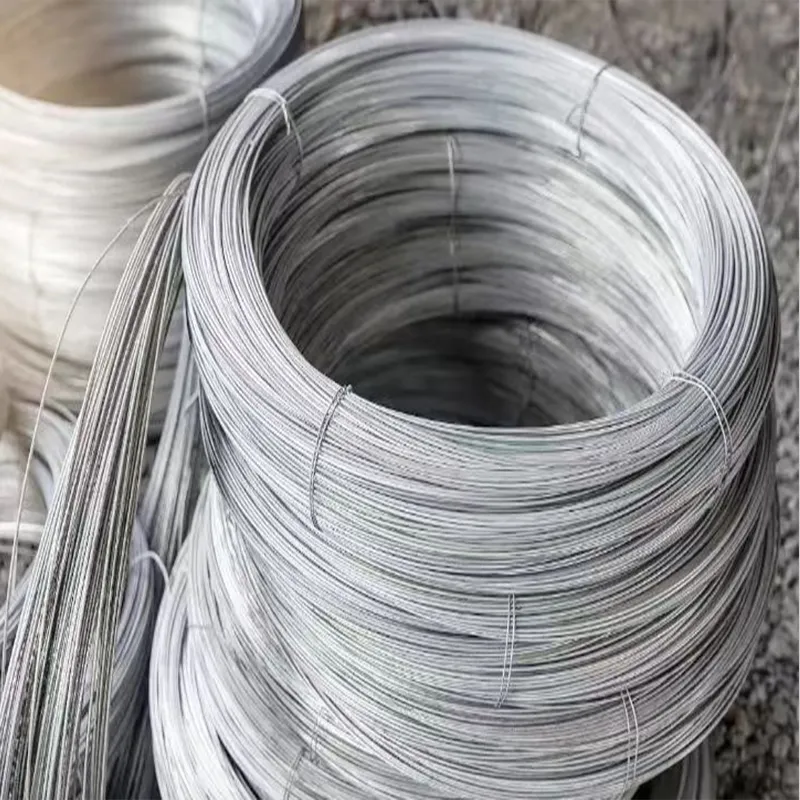-
 Phone:
Phone: -
 Email:
Email:

baling wire for sale
Baling Wire for Sale Your Essential Guide to Choosing the Right Wire for Your Needs
In various industries and farming operations, the need for reliable fasteners has never been more critical. Baling wire, a crucial tool for bundling and securing materials, plays a significant role in agriculture, recycling, and manufacturing. This article will explore the different types of baling wire available for sale, their applications, and tips for selecting the right one for your needs.
What is Baling Wire?
Baling wire is a specialized wire used to bind bales of hay, straw, or other bulk materials. It ensures that the bales maintain their integrity during storage and transportation. The wire is typically made from steel, allowing it to withstand significant tension while remaining flexible enough to be easily manipulated.
Types of Baling Wire
1. Heavy-Duty Baling Wire This type is designed for robust applications such as large-scale farming or recycling operations. Heavy-duty baling wire is typically thicker, providing enhanced strength and durability for binding heavier loads. It is suitable for use in round and square bales, minimizing the risk of breaking under stress.
2. Lightweight Baling Wire For smaller-scale operations, lightweight baling wire may be sufficient. It is easier to handle, making it ideal for occasional use or for those who do not have significant binding needs. However, it is important to ensure it is compatible with the requirements of the materials being bound.
3. Galvanized Baling Wire This wire is treated with a coating of zinc, which provides added protection against rust and corrosion. Galvanized baling wire is especially useful for outdoor applications where exposure to moisture and environmental elements is a concern. The added durability of galvanized wire makes it a preferred choice for long-term storage and transportation.
4. Coated Baling Wire Some baling wires come coated with plastic or other materials, providing extra grip and reducing the risk of rusting. This type of wire is often used in agricultural settings where the bales might be exposed to various elements that can compromise their integrity over time.
Applications of Baling Wire
Baling wire is primarily found in agricultural settings, where it is used to secure bales of hay, straw, and cotton. In recycling, it binds scrap materials together, facilitating efficient transport and processing. Additionally, industries such as manufacturing and construction utilize baling wire for securing products or materials.
baling wire for sale

Selecting the Right Baling Wire
Choosing the correct baling wire involves evaluating several factors
- Load Requirements Consider the weight and type of materials you will be binding. Heavier and bulkier materials may require heavy-duty or galvanized wire.
- Environmental Conditions If the bales will be stored outdoors or in damp environments, opt for galvanized or coated baling wire to prevent rust and corrosion.
- Ease of Use For smaller operations or for those new to using baling wire, lightweight options can be easier to handle and install.
- Cost-Effectiveness While it may be tempting to choose the cheapest option available, investing in quality baling wire can save you money in the long run by reducing breakage and the need for replacements.
Where to Buy Baling Wire
Baling wire is readily available at agricultural supply stores, home improvement centers, and online retailers. When purchasing baling wire, it is essential to compare prices and read reviews to ensure you are getting a product that meets your needs and expectations.
Conclusion
Baling wire is an indispensable item in many industries, providing the strength and reliability needed to secure materials effectively. By understanding the different types available for sale and the specific applications they suit, you can make an informed decision that will enhance your operational efficiency. Whether you are binding bales in agriculture or collecting materials in recycling, the right baling wire can make all the difference.
-
Wire Mesh for Every Need: A Practical SolutionNewsJul.25,2025
-
Steel Fences: Durable, Secure, and Stylish OptionsNewsJul.25,2025
-
Roll Top Fencing: A Smart Solution for Safety and SecurityNewsJul.25,2025
-
Cattle Farm Fencing Solutions for Maximum SecurityNewsJul.25,2025
-
Affordable Iron Binding Wire SolutionsNewsJul.25,2025
-
Affordable Galvanized Wire SolutionsNewsJul.25,2025
-
Wire Hanger Recycling IdeasNewsJul.25,2025








